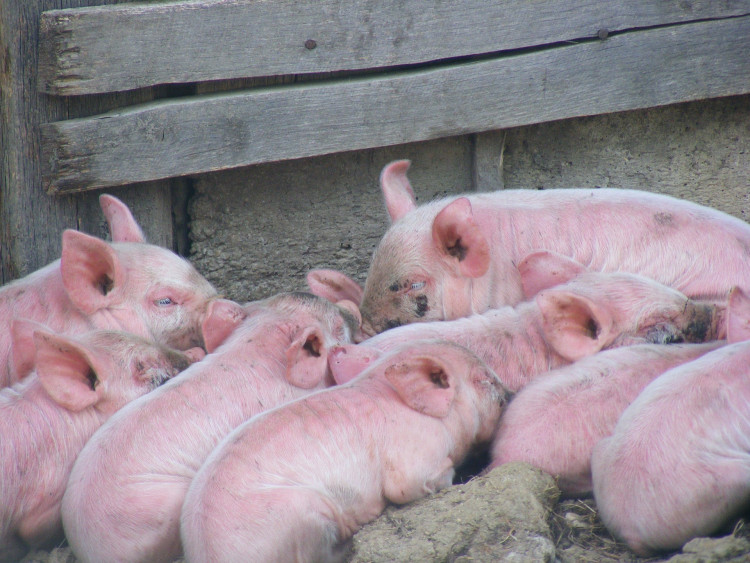The African Swine Fever outbreak, which pushed China to cull 38,000 pigs nationwide on Sept. 8, sparks fears that unmanageable rise in pork prices could fuel inflation. When this happens, China's central bank may tighten monetary regulations, affecting the economy of the country as a whole.
Pork prices have increased to as much as 7 percent from its original prices since the outbreak hit China in August, CNN reported, citing data from China's Ministry of Agriculture and Rural Affairs. The prices could skyrocket at any moment that a new outbreak happens according to Chenjun Pan, an analyst at investment bank Rabobank.
Making things complicated is the ongoing US-China trade war. In April, Beijing was compelled to impose 25 percent tariffs on U.S. pork products as part of a retaliatory move when the Trump administration imposed the same.
The escalating trade conflict means that China will have difficulty finding alternative pork supply because it will be more expensive to import from the United States. More so, the value of the Chinese yuan is failing versus the U.S. dollar due to the trade war launched by U.S. President Donald Trump.
Romania, which alternatively supplies pork to Beijing, is also at a middle of an African Swine Fever outbreak.
Loren Puette, director of Taiwan-based research firm ChinaAg, told CNN that if the situation persists, like if China finds another virus strain or outbreak is reported from other provinces, the country's pork industry could be brought into a standstill.
Puette said matters could get worse if the virus spread into central China where the majority of the country's pig industry is located. In this scenario, the impact on Beijing's economy could no longer be mitigated.
Aside from health concerns, the economic impact of the outbreak such as price hikes and lack of supplies may also spread into nearby countries. China is the world's biggest producer of pork, accounting for as much as 50 percent of the world's pig supplies.
On Sept. 9, the Ministry of Agriculture said there were outbreaks in five Chinese provinces but the situation had since been under control. Ministry spokesperson Guang Defu said culling and disinfection have been completed in Liaoning, Henan, Jiangsu, and Zhejiang provinces, as well as Anhui Province as of Sept. 8.
The ministry explained that African Swine Fever, while it is highly contagious and fatal in pigs, has no known effect on humans. The virus is also unlikely to jump from the pigs to other animal species.
The ministry said China is not the only country battling the deadly disease. As of late August, there had been 3,253 cases reported in 11 countries. At present, the ministry is more concerned that outbreaks from other countries could find its way back to China, hitting other provinces, and making it harder for the government to restrain the virus.





